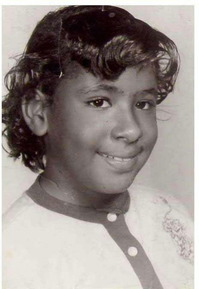FOR IMMEDIATE RELEASE
CONTACT
Edward L. Sweda, Jr. or Mark Gottlieb
617-373-8462 or 617-373-2026
2010 Verdict Reflected Juror Outrage at Handouts of Free Cigarettes to Children.

The SJC today unanimously rejected Lorillard Tobacco Co.’s attempt to evade liability in a case brought by Willie Evans, whose mother Marie died in 2002 at the age of 54. Testimony at trial reported that while Marie was a child growing up in the Orchard Park housing project in the Roxbury neighborhood of Boston, she received free samples of Newport cigarettes. Marie, who first received the free samples of Newport cigarettes when she was 9 or 10 years of age, became addicted by the time she was 13, according to lawyers for her son, Willie Evans.
Newport, which is Lorillard’s best-selling brand of cigarettes and contains menthol, has been heavily marketed toward the African-American community, a fact that was highlighted at the 2010 trial.
In today’s ruling the Massachusetts high court upheld the compensatory damages of $35 million but reversed a punitive damages award of $81 and sent the case back for a new trial on the issue of punitive damages. The Court found that the jury was not adequately instructed about the negligence claims pertaining to design and marketing.’s ruling the Massachusetts high court upheld the compensatory damages of $35 million but reversed a punitive damages award of $81 and sent the case back for a new trial on the issue of punitive damages. The Court found that the jury was not adequately instructed about the negligence claims pertaining to design and marketing.
However, the key finding was that the Court upheld the jury’s finding that Newport cigarettes were not fit to be sold in Massachusetts (breaching the implied warranty of merchantability).
Lorillard could have and should have sold a safer alternative product that did not addict Ms. Evans and cause her lung cancer. The Court wrote:
We decline to place addictive chemicals outside the reach of product liability and give them special protection akin to immunity based solely on the strength of their addictive qualities. . . . Rather, we conclude that, in determining as a matter of law whether the evidence presented at trial was sufficient for a reasonable jury to conclude that the plaintiff’s proposed design was a reasonable alternative to the defendant’s product, we must determine whether the design alternative unduly interfered with the performance of the product from the perspective of a rational, informed consumer, whose freedom of choice is not substantially impaired by addiction. Applying that standard to the evidence in this case, we conclude that a reasonable jury could find from the evidence presented that a low tar, low nicotine cigarette constituted a safer reasonable alternative to Lorillard’s Newport cigarettes. (emphasis added)
By “low tar, low nicotine cigarette,” the Court is not referring to brands that were deceptively marketed as “lights.” It means cigarettes that do not addict and expose consumers to an array of carcinogens. As a matter of law in Massachusetts, any cigarette sold that addicts or maintains the nicotine addiction of consumers is defective. That would include just about every cigarette sold in Massachusetts.
Mark Gottlieb, Director of the Public Health Advocacy Institute (PHAI), which is based at Northeastern University School of Law in Boston, was delighted with today’s ruling: “Florida has been a hotbed of tobacco litigation in recent years because cigarettes there are considered defective as a matter of law for a former class of addicted smokers. About 8,000 cases are awaiting trial in Florida. After today’s ruling, this is now the law in Massachusetts with the important difference that it applies to every plaintiff victim of cigarette industry products. I expect many more cases here to help to address the suffering of victims like Marie Evans who were needlessly addicted in their youth to a deadly product.”
Edward L. Sweda, Jr., Senior Attorney for PHAI, added that, “It is high time that Lorillard is forced to pay the Evans family for the suffering caused by its outrageous practice of giving away deadly and addictive Newport cigarettes to children near housing projects. This company’s profiteering for decades on the backs of African Americans must come to an end and today’s ruling is an important step in that process.”
